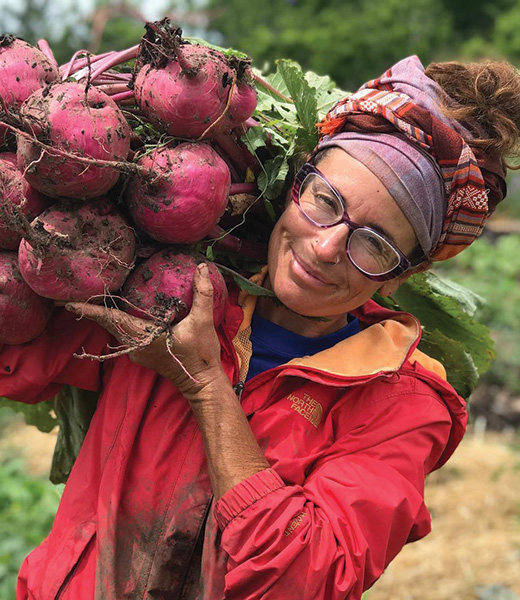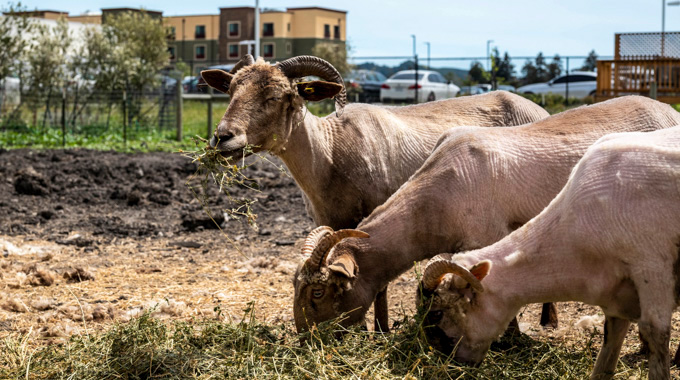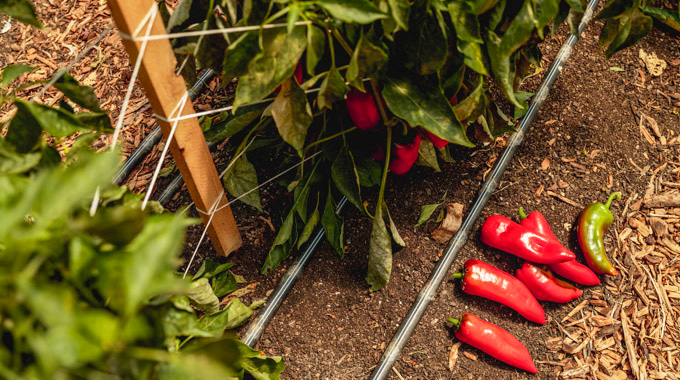Like most urban farms, City Farm SLO in San Luis Obispo, California, doesn’t fit the image of the quintessential American farm. You won’t find crops as far as the eye can see, a red barn rising from a wheat field, or giant motorized tractors making the rounds.
Instead, the 19-acre farm, which turns out bountiful crops—think multihued peppers, tomatoes, and green beans in summer; and broccoli, kale, and brussels sprouts come winter—is bounded by car dealerships, tract homes, and a freeway.
But what really sets the farm apart from traditional commercial operations are its educational programs and its community outreach. City Farm SLO is a nonprofit that offers volunteer opportunities for all ages, community workshops and events (the recent “Sheep and Shavasana” yoga series was a hit), and speaker series, all of which draw both longtime supporters and new visitors.








